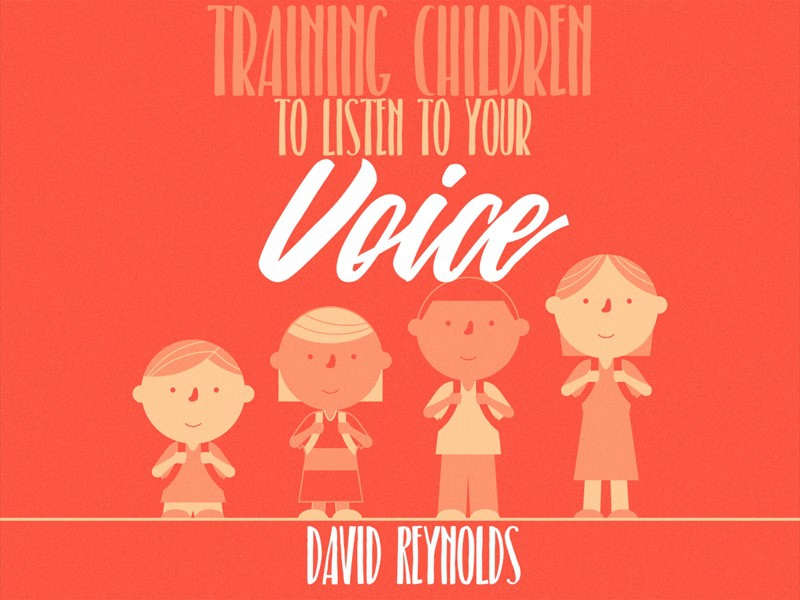We should always speak in a kind, but firm voice; in language which leaves no doubt what action is required on the part of the child. Speak in an ‘I mean it’ tone—that leaves not doubt that you will take firm action if the command is not obeyed.
By David Reynolds
To View the Entire Article, Click Here
To Download the Entire Article Directly to Your Computer, Click Here
To View the Outline, Click Here
To View the PowerPoint, Click Here
“…the Lord called Samuel and he answered, here am Speak for thy servant heareth”
(I Samuel 3: 4, 10).
Children need parents who are willing to tell them exactly what conduct is needed, when it is needed and are willing to take action to enforce these request. Children need parents who will train them to obey when the parent speaks.
- Parents need to talk less and act more:
I once had a father share with me that he had to speak to his son six times—and his son then would obey, only when the father started to get out of his chair. This should have told him something.
Whatever you do after the sixth time you speak do after the first and you will save a lot of breath and frustration.
My dear mother threatened often and carried through only when she got angry. Dad rarely got angry but carried through often. You can guess which one was more readily obeyed.
I usually speak no more than two times. The first is a request, the second a command. When I use the command voice the voice changes so there is no doubt as to it’s meaning.
- Parents need to let the tone reinforce the message: One night as I was coming out of church one of our good sisters was heard to say.
“MATTHEW JOSEPH SMITH! YOU COME HERE!”
When her son was out of hearing range I said. “I heard you use your ‘I mean it voice’.”
She replied, “I meant it!”
My son who was standing behind me said, “Mine is RICHARD!”
I asked, “Is it?”
He replied, “Yes, when you say RICHARD, you really mean it. I don’t like it when you call me Richard. I want to be Richie.”
- Parents should not raise their voice when giving instructions:
“You cannot train a horse with shouts and expect it to obey a whisper” (Dogobert D. Runes).
To View the Entire Article, Click Here
To Download the Entire Article Directly to Your Computer, Click Here
To View the Outline, Click Here




